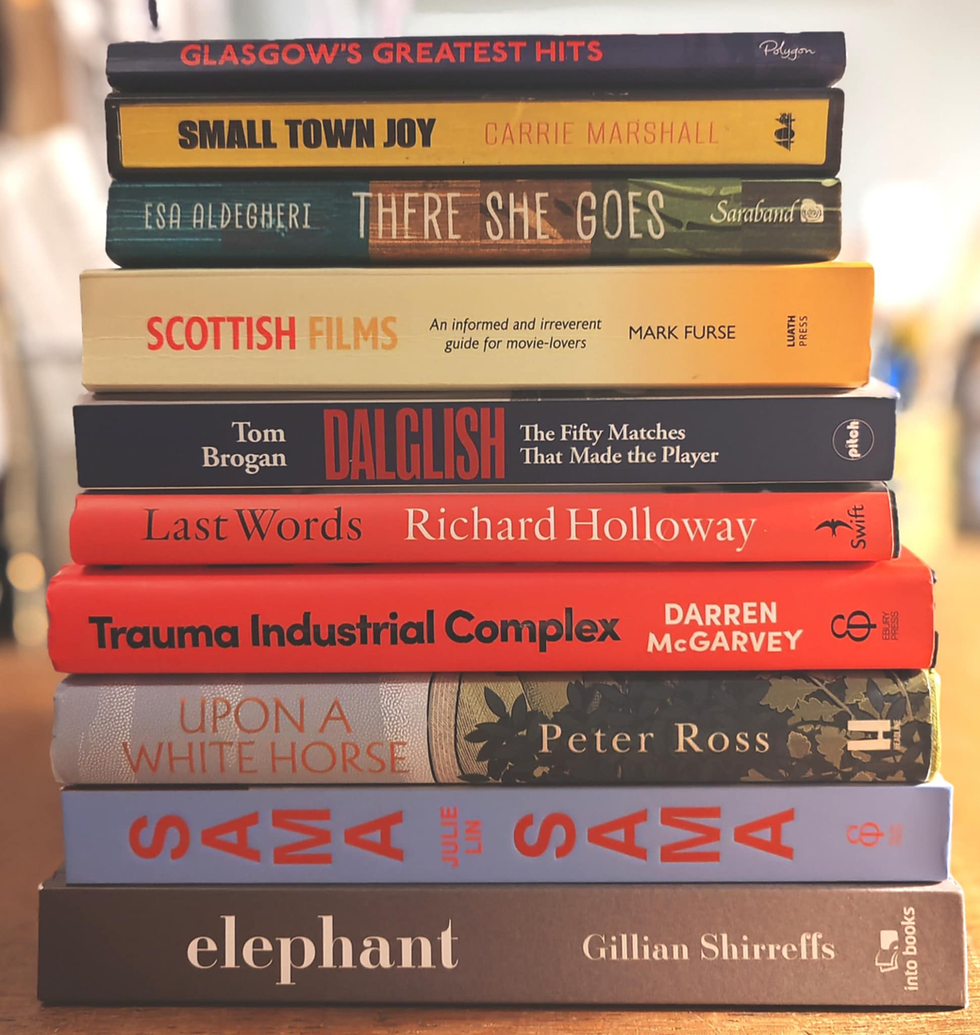His Bloody Valentine: A Review Of Alan Parks’ February’s Son…
- Alistair Braidwood

- Oct 10, 2019
- 4 min read
Updated: Oct 13, 2022

The Glasgow crime novel has a rich, varied and celebrated tradition. Many would cite William McIlvanney’s Laidlaw as the first true classic of the genre, but before that you have to consider the phenomenal success and notoriety of No Mean City, Herbert Kingsley Long and Alexander McArthur’s 1935 novel which did more than any other to shape and colour the notion, for a generation of readers, of the city as a place where razor gangs ruled. However, even before that classic novels such as Walter Scott’s Rob Roy and James Hogg’s The Private Memoirs and Confessions of a Justified Sinner had scenes set in the city which suggest that of all Scottish towns and cities Glasgow had long held a reputation as a dark and dangerous place where dirty deeds are done dirt cheap.
Recent notable writers to have enhanced this literary legacy include Denise Mina, Louise Welsh, Douglas Skelton, Craig Russell, Liam McIlvanney, and many more – so many that you may think that there was little new to tell, or ways to tell it. Enter Alan Parks. With his previous novel Bloody January he introduced us to Detective Harry McCoy and a coterie of characters who made an immediate impact. His second, February’s Son, proves that was no fluke and strongly suggests that this is a series set to run and run.
Set in the early 1970s, Parks has managed, in the space of just two books, to create a world which avoids wallowing in nostalgia, instead using the past as a setting for crimes and events which remain relevant today. This is achieved by populating them with individuals who avoid well-trodden stereotypes while being immediately recognisable. For Parks, it’s never as simple as having white hats versus black, there is moral ambiguity throughout, and it is testimony to his skill that we forgive, or at least excuse, some truly appalling behaviour.
February’s Son begins almost immediately after Bloody January, with McCoy returning to work only after consultation with the police psychiatrist after his near-death escape on a Glasgow rooftop. With only the merest sympathy on show from his colleagues he is thrown into another case where the lines between the law and criminality quickly become blurred, and the past threatens not only to haunt him, but destroy him one way or another. Harry McCoy is a character who is good at his job not despite everything thrown at him, but because of it.
Be under no illusion, for many of the characters in February’s Son life is nasty, brutish and often short, or at least some combination of the three. This is a world where extremes meet and McCoy thrives as a detective in no small part because he understands both worlds in which he resides. His paternal relationship with his superior Murray is balanced by his “friendship” with rising gangster Stevie Cooper – the latter forged in a particularly unforgiving and brutal childhood. Imagine Trainspotting’s Renton had joined the police and Francis Begbie had risen to run a local firm and you have some idea as to the nature of their relationship, the complexity of which is at the heart of this story in-particular.
February’s Son is full of contradiction, confrontation, deception and deceit, yet retains a humanity which is perhaps unexpected and difficult to define. It all comes down to the characters, and the justification for their actions. Parks asks us to consider the statement (often ascribed to Machiavelli) that “the ends justify the means”, and in the majority of McCoy’s cases the ends are so shocking and horrific that almost any means seem justified, or at least they are to those involved. Perhaps the greatest feat the writer achieves is to carry us along with these arguments, until, as with McCoy, we revaluate not only what has happened, but our reaction to it. There’s a level of reader complicity which is rare, and potentially troubling for some. When posed with the question, “what would I do?” the answer could be unexpected.
In the last few years we have reviewed many novels on these pages sold under the banner of crime. Sometimes it appears a banner of convenience, but Alan Parks is writing unashamedly in the genre along the lines of Ian Rankin, Val McDermid, Anne Cleeves and Christopher Brookmyre, and that is the company in which he belongs. However there is also a link to the British pulp fiction of the ’60s and ’70s – often sold as cheap paperbacks with the promise of sex, drugs and violence between racy and sensationalist covers. When you consider those touchstones and references, and most importantly the writing itself, it becomes clear that Alan Parks is writing crime fiction which is both familiar yet unexpected – simultaneously incorporating the old, new, borrowed, and black and blue. Roll on March.
Both Bloody January and February’s Son are published by Canongate.
Ali will be in conversation with Alan Parks as part of the Imprint Festival at Kilmarnock’s Dick Institute on 10-10-2019. Details and tickets are here…









Comments